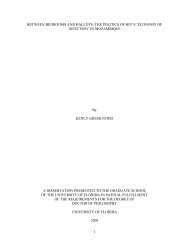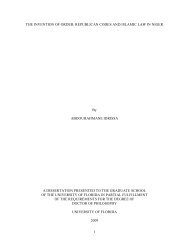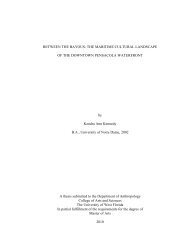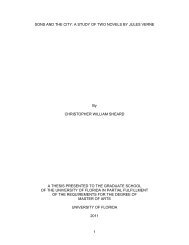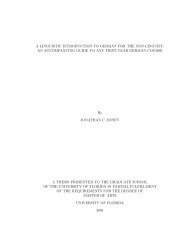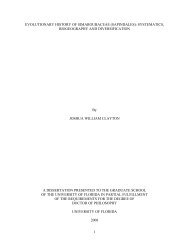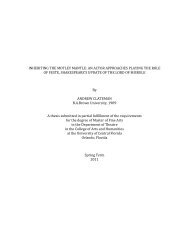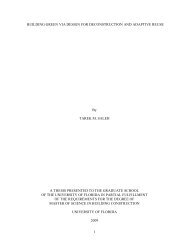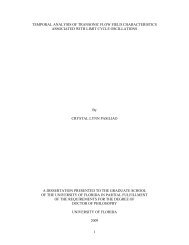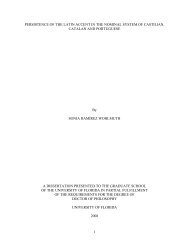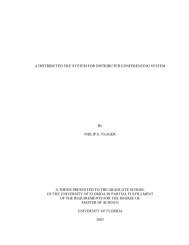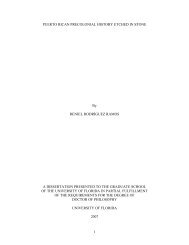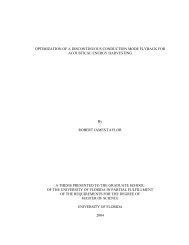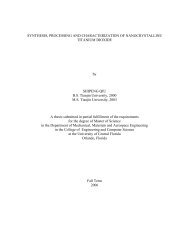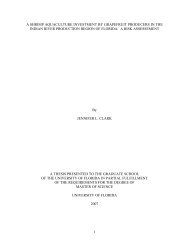t b a b a
t b a b a
t b a b a
Create successful ePaper yourself
Turn your PDF publications into a flip-book with our unique Google optimized e-Paper software.
equires that the number of different jobs processing times be bounded by a constant. It<br />
turns out that there are polynomial approximations for some P ||Cmax problems.<br />
We consider an R||Cmax scheduling problem in which all machines are unrelated. All<br />
jobs are available at the beginning time and there are no precedence constraints. As no<br />
preemption is allowed, once job Ji started processing on machine Mj it must complete its<br />
execution before another job, Jk can be processed on Mj.<br />
Given a set of N = 2 n jobs and M = 2 m machines we can construct 2 m2n<br />
different sched-<br />
ules. This R||Cmax scheduling problem is NP − hard and is difficult for classical algorithms<br />
even with small instance. Up to now, most classical algorithms use linear programming based<br />
rounding techniques(LP-rounding) to search an approximate schedule instead of the optimal<br />
one [GSU04,SS02]. If the number of machines m is part of the input, the best approximation<br />
algorithm to date is a 2-approximation by Lenstra, Shmoys and Tardos [LST90] which can<br />
find a schedule with Cmax < 2∗C opt<br />
max. Moreover, the problem cannot be approximated within<br />
a factor strictly smaller than 3/2, unless P = NP [LST90]. No proper classical algorithm<br />
addresses a general case of searching the optimal schedule except the exhausting search which<br />
has time complexity O(M N ) on a classical computer. We suggest a reformulation of such<br />
problems to take advantage of Grover-type search and gain square root speedup on searching<br />
the optimal schedules over their classical counterparts.<br />
48



